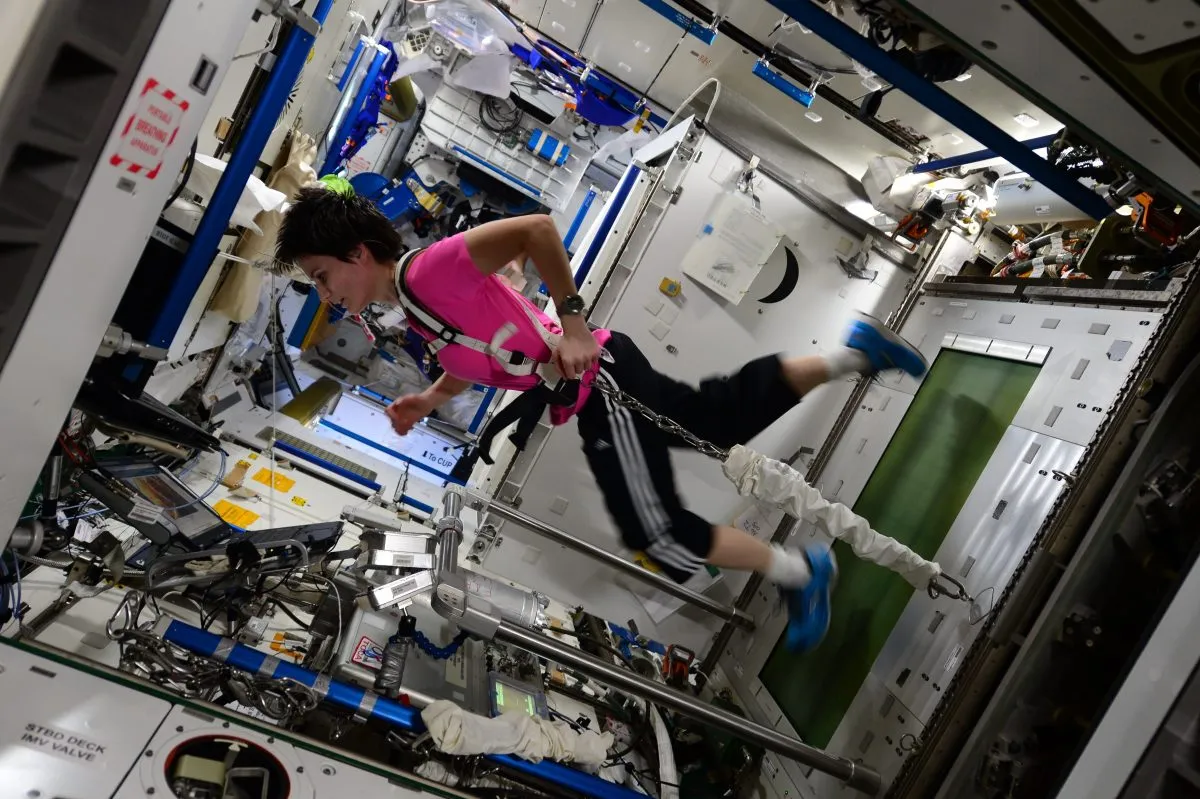Scientists researching the effects of low-gravity environments on the human body have suggested that a ‘wall of death’-like contraption may offer the best way for astronauts to exercise on the Moon.
It has long been known that low-gravity environments are bad for the body.
When you suddenly weigh 80% less, your muscles and bones are doing a lot less work, and that lack of activity can soon lead to problems including atrophied muscles and osteoporosis.
Find out how the Moon's features compare to Earth's

That’s why astronauts on the International Space Station, for example, are given a strict exercise regime to follow.
NASA’s Artemis III mission – currently scheduled for launch in 2026 – will see humans returning to the lunar surface for the first time in over 50 years, with the aim being to eventually set up a permanent, crewed base.
NASA has even begun establishing a standard time zone for the Moon.

But if a new generation of moonwalkers is going to stay on the lunar surface for months at a time, more effective exercise programmes will need to be devised to keep them in peak condition.
Just to complicate matters, in a low-gravity environment your body doesn’t quite function as it normally does.
Walking with a standard ‘pendulum’ gait, for instance, becomes tricky and slow, which means that many standard Earth-based exercise regimes (such as jogging) aren’t really suitable for lunar residents.
Is a wall of death on the Moon the answer?

A team of Italian scientists led by Alberto E. Minetti at the University of Milan think they may have the answer – and it looks a lot like something you might have seen at the circus!
They hired a 9.5m-diameter wall of death – one of those large wooden cylinders that motorcyclists ride around the walls of at death-defying speeds – and used bungee cords to mimic lunar gravity by reducing the bodyweight of test subjects, who were then asked to run around the wall.
They found that while humans under normal Earth conditions can’t run fast enough to ape motorcyclists’ performance on a wall of death, doing so was not problem for the test subjects.

And the centripetal forces generated served effectively as a kind of replacement gravity, enabling their bodies to get the benefits of the exercise just as they would on Earth.
Just a few laps twice a day could be enough to stave off the negative health effects of low-gravity living, they say.
What’s more, with many of the draft plans for putative lunar settlements featuring round buildings, future Moon-dwellers wouldn’t even need any special equipment, but could simply run around the walls of their dwellings.
Read the full paper at royalsocietypublishing.org/doi/10.1098/rsos.231906

